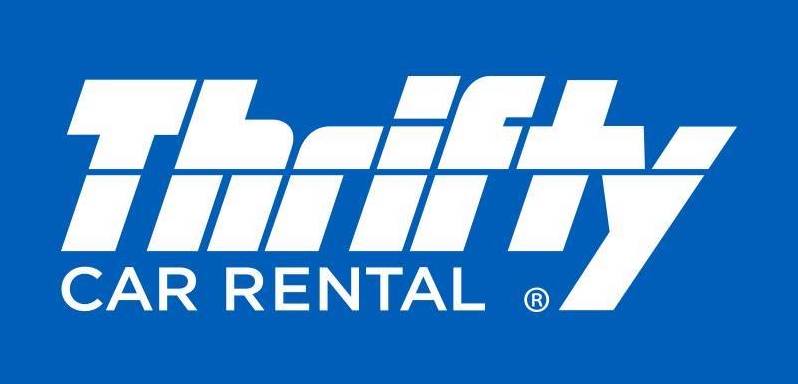Handy Facts For Choosing Car Rental Websites
Handy Facts For Choosing Car Rental Websites
Blog Article
How Do You Review The Insurance Coverage Provided By The Rental Company When Renting A Car?
You should review the options and insurance coverage provided by the rental agent to make sure you're protected and don't have to pay for unnecessary expenses. Understanding the basic coverage first, you must to understand what is covered by the rental agreement. The majority of rental companies offer an insurance policy for liability, which covers damages to third-party properties and bodily injuries in the case in the event of an accident. The coverages can include the possibility of deductibles or limits.
Check out additional coverage options. In addition to standard insurance, many rental firms offer optional insurance that provides additional security. There are two kinds of additional coverages that are commonly used: Collision Damage Waiver which will lessen or eliminate the financial responsibility which you have to pay for damage caused to your rental car, and Loss Damage Waiver which covers damage or theft to your rental.
Assess coverage limits and deductables Review the coverage limits and deductibles associated with every type of insurance. Find out the maximum payout from insurance in the event of damages. Also, figure out the deductible you have to pay prior to when your insurance coverage starts to take effect.
Personal Insurance Policies. Find out whether you have coverage through your credit card or insurance policy. Some credit cards provide secondary insurance protection for rental cars when you pay for the rental with the card. Similarly, your personal auto insurance policy might extend coverage to rental vehicles, but the coverage amount varies depending on your policy and the insurance company.
Examine your Risk Tolerance. Think about your risk appetite as well as your financial status when deciding whether you'd like to purchase additional insurance. It may be beneficial to purchase additional insurance if you are concerned is related to the risk of loss or damage. You could choose not to use the insurance plans that rental companies offer when you've got enough insurance.
Inquire on Exclusions. Inquire with the rental agent about any insurance restrictions that apply to driving off-road, the presence of unlicensed drivers, or the use of the vehicle to conduct business. Be sure to read the terms and conditions of the insurance policy. This will help you avoid any surprises if an accident happens.
Document any existing damage: Before signing the rental agreement, you must thoroughly examine the vehicle for any indications of damage. Document any damage, such as scratches, dents, or any other damage, and document it on the rental agreement. You'll be safe from being held accountable for damages that were already present when you return the vehicle.
Examining the insurance and other options provided by the rental firm will assist you in making the right decisions. This way, you'll be protected throughout the rental period, without incurring unnecessary costs. Have a look at the recommended car rentals recommendations for website recommendations including rental car location near me, good cars to rent, car rental prices, near me car rent, cheap car hire one way, luxury sedan rental, day by day car rental, car rental car near me, car car hire, fancy cars for rent and more.
How Can You Know The Policies Regarding Rental Of A Company?
To make sure that your rental runs smoothly, you should learn about any policies the company has regarding the different elements of renting a car. You can find out about the policies of the rental company regarding age restrictions and driver requirements. In addition, you'll be informed about the fuel policy and any additional fees for additional services. Rental companies typically have information on their website about policies such as limitations on age, fuel policy, and mileage limits.
Please read the Rental Agreement carefully prior to signing it. The rental agreement will include crucial details, including restrictions, requirements and fees.
Contact the Rental Company directly: Don't be afraid to reach out to the rental company directly for any queries or concerns regarding their policies. Contact their customer service department by phone or email if have any queries regarding the age limit, driver requirements and mileage limits fuel policies, or any additional charges.
Age Restrictions: Determine if the rental company has any age-related restrictions when renting a car. Some rental companies have minimum age requirements for renters, and they may impose additional fees or restrictions on drivers who are younger than a certain age, like drivers under 25 years of age.
Find out the requirements for drivers of the rental company. Rental companies demand that renters possess an official license, along with a solid driving record. Certain companies may also have particular requirements regarding the amount of time someone is a licensed driver.
Know the mileage limitations for rental companies. Most rental contracts include the number of miles (or kilometers) per day. Any extra mileage may be subject to additional charges. If there are restrictions on where you can use the rental car make sure you know if they apply.
Fuel Policies: Read the fuel policy of the rental firm to learn what fuel is used in the vehicle. Some firms require that the rental vehicle be returned with a full tank. Other companies allow you to purchase a fuel tank beforehand or pay for refueling service charges in the event that your tank isn't fully filled.
If there are additional fees, inquire about the charges. These include GPS navigation systems, child seats or any other piece of equipment. Rental companies may charge an additional fee for extra services or amenities. Make sure to inquire about these fees upfront.
If you take the time to become familiar with the rental policy of the company concerning age restrictions and the requirements for drivers, mileage limits the fuel policies, as well as additional charges for extras You can be sure of a more pleasant rental experience. You will also avoid any surprises or misunderstandings throughout your rental time.
What Do You Need To Know About The Policy On Fuel For A Rental Firm?
Understanding the fuel policy of the rental firm is essential to avoid extra fees and ensure a smooth process. How to clarify the fuel policy? Go through the rental agreement: Review the rental agreement offered by the rental company with care. Most of the time, the you can find the fuel policy in the document.
Check the Terms and Condition Pay attention to the specifics of the fuel policy. For instance there may be a requirement to return your vehicle with a full tank, purchase a fuel tank at a fixed price or pay a refueling cost.
For more information, contact the Rental Company Representatives. If the fuel policy in the rental contract is unclear or you have any questions you may have, please don't hesitate to ask the representatives of the rental company to clarify. Contact their customer service department via phone, email or via live chat to inquire about their fuel policy.
Some rental companies ask that you return the vehicle with a full tank of fuel in order to avoid additional charges. In this case you'll have to top up your gas tank at a gas station nearby before returning the vehicle. The receipt for fuel is proof that you have refueled your vehicle.
Pre-Purchase Gas Option: Some rental car firms offer the purchase of a tank in advance for a set price when you pick up the vehicle. This option allows you to return the vehicle with a fuel level that is at any point without the cost of refueling. Fuel that is not used may not be refunded.
Refueling Fees The rental firm will charge you when you return the vehicle with less fuel than what you bought and did not purchase it in advance. This charge is typically comprised of the cost of fuel and a service fee. The local gas prices could be significantly more expensive.
Learn about penalties: Be aware of any charges or penalties that are a part of the policy on fuel, for example, administrative costs for failure to comply with the refueling rules. Knowing these penalties in advance will help you avoid any unexpected charges when returning the car.
Plan ahead: Based on your travel plans as well as the fuel policy of your rental company Plan your strategy for refueling. Take into consideration the amount of time it will be to locate and fuel up at a petrol station close to the rental vehicle prior to returning it.
Knowing the policy on fuel of the rental company you are renting from and observing its regulations will help you avoid any unneeded charges.